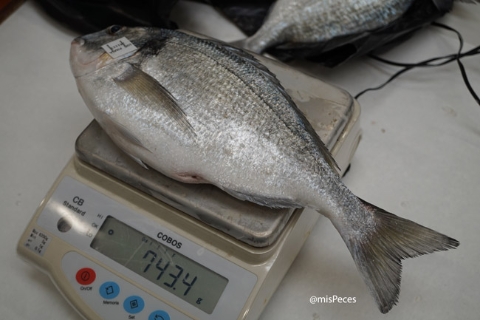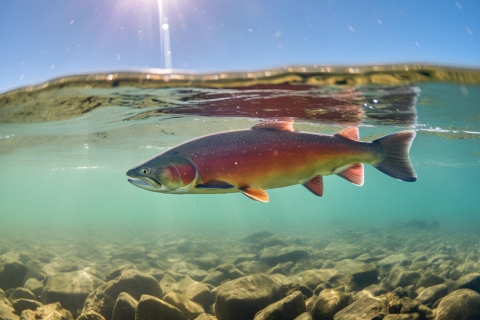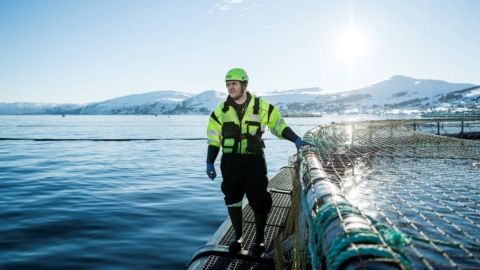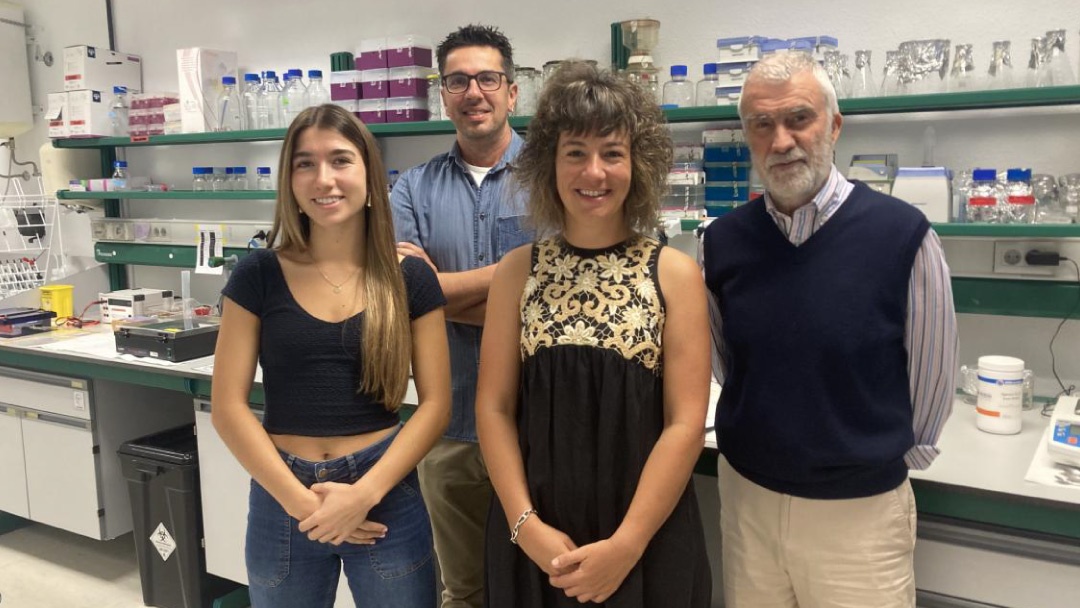 Investigadores principales | Universidad León
Investigadores principales | Universidad León
Global warming has ceased to be an abstract risk for freshwater aquaculture: heatwaves are now a concrete and growing threat to sustainability of rainbow trout farming in Spain. A joint team of scientists from the University of León, the University of Murcia, and the Institute of Agrarian Technology of Castilla y León, in Spain, confirmed, after four years of monitoring across 17 sites in the Duero basin, that extreme thermal events undermine not only the growth phase of trout but also their reproductive capacity.
Castilla y León, which accounts for more than a quarter of Spain’s national rainbow trout production, stands at the very centre of this climate alert.
Data collected within the REPHEAT 2022-2025 project show that the duration of heatwaves has risen progressively, reaching up to 71 consecutive days in the summer of 2023, with peaks of 8.94ºC above seasonal averages. These increases are accompanied by sharp reductions in dissolved oxygen and alterations in river flow and water levels, all of which intensify physiological stress in fish.
In market-size trout, a 19-day experimental heatwave replicating natural conditions revealed a consistent trend towards weight loss, a marked increase in oxidative stress markers in both plasma and skin, and an upregulation of genes associated with heat shock response.
Interestingly, the scientists noted that the reaction was tissue-specific: while skin and blood showed strong signals of stress, liver and gill tissues displayed little or no change in redox-related gene expression, indicating a differentiated physiological strategy not yet fully understood.
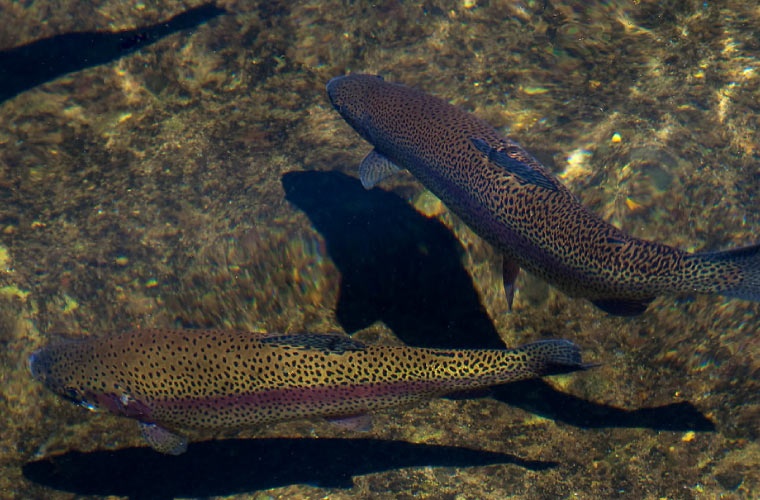
Beyond the growth-out stage, a complementary study published in Aquaculture has highlighted an even more profound risk: compromised reproductive capacity. A simulated heatwave of only 16 days in mature males resulted in reduced plasma testosterone levels and a significant decline in sperm quality, with lowered motility and viability.
On a cellular level, differentiation of spermatocytes types I and II was halted, and apoptosis increased markedly in spermatozoa. Transcriptomic analyses revealed the alteration of more than one thousand genes involved in maturation and apoptosis, shedding light, for the first time, on the molecular mechanisms behind heatwaves-induced disruption of spermatogenesis.
According to lead author Dr Marta Riesco, the findings demand a paradigm shift in freshwater aquaculture management: “Given the current climate scenarios, it is urgent to develop strategies that mitigate the impact of heatwaves on farmed fish and ensure the continuity and sustainability of the industry.”
The recommendations include enhanced environmental monitoring, spatial planning that accounts for localized intensity and duration heatwaves, and genetic selection for more resilient lines. Adjustments in farming practices will also be crucial, from optimizing feed formulations to high-stress conditions to reducing stocking densities during critical periods.
The challenge, however, goes beyond the immediate management of farms. The authors, including co-author Dr Ignacio Fernández, believe that the future of freshwater aquaculture in Europe depends on integrating climatological data and predictive models into strategic decision-making. The newly funded MITHEAT 2025–2028 project will explore these solutions with a holistic approach encompassing all stages of the production cycle, from embryos through to broodstock.
The conclusion is stark: heatwaves can no longer be dismissed as occasional weather anomalies; they are becoming a structural constraint for rainbow trout aquaculture. For a sector that underpins rural employment, helps stabilise depopulated regions, and provides high-quality protein source, the challenge of climate change translates into an urgent need for a resilient production model.
Far from merely documenting risks, this body of research provides the scientific basis and practical tools upon which the future viability of European freshwater aquaculture will depend.
References:
1.- Laura Calvo-Rodríguez, Juan Bosco Ortiz-Delgado, Lucía Cañón, Paulino de Paz, Ignacio Fernández, Marta F. Riesco. Current summer heat waves impair rainbow trout (Oncorhynchus mykiss) spermatogenesis: Implications for future fish farming management practices in South Europe. Aquaculture, Volume 596, Part 1, 2025, 741716, ISSN 0044-8486 https://doi.org/10.1016/j.aquaculture.2024.741716
2.- Marta F. Riesco, Laura Calvo-Rodríguez, Maria Ángeles Esteban, Paulino de Paz, Ignacio Fernández. Impacts of present heat waves in freshwater environments during out-growth phase in rainbow trout, Oncorhynchus mykiss, underscores the need of new wisely designed mitigation strategies: climatological, physiological and molecular analyses. Aquaculture, Volume 610, 2026, 742879, ISSN 0044-8486 https://doi.org/10.1016/j.aquaculture.2025.742879


